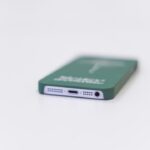The smartphone market is a dynamic and ever-evolving landscape, with devices frequently changing hands. Among the various types of smartphones, locked iPhones present a unique challenge and opportunity for sellers. A locked iPhone is one that is tied to a specific carrier, meaning it cannot be used with other networks until it is unlocked.
This limitation can affect the resale value and the potential avenues for selling the device. Understanding how to navigate the complexities of selling locked iPhones is essential for maximizing returns and ensuring a smooth transaction. In recent years, the demand for used smartphones has surged, driven by consumers seeking budget-friendly alternatives to new devices.
This trend has created a vibrant marketplace for sellers, including those with locked iPhones. However, selling a locked device requires a nuanced approach, as potential buyers may have concerns about compatibility and usability. By exploring various selling options and understanding the implications of selling a locked iPhone, sellers can make informed decisions that align with their needs and goals.
Key Takeaways
- Selling locked iPhones can be a profitable venture if done strategically and with the right knowledge.
- Understanding the value of locked iPhones and how they can be sold to online marketplaces is crucial for maximizing profits.
- Pros of selling locked iPhones to online marketplaces include reaching a wide audience and potentially getting higher prices, while cons include fees and potential scams.
- Local electronics stores can offer convenience and immediate payment for locked iPhones, but they may offer lower prices compared to online marketplaces.
- Selling locked iPhones to friends and family can be a quick and easy way to make a sale, but it may limit the potential for higher profits.
- Selling locked iPhones for parts can be a viable option for devices that are no longer functional, but it may require time and effort to disassemble and sell the parts individually.
- When selling locked iPhones, it’s important to consider the pros and cons of each selling method and choose the option that best aligns with your goals and preferences.
Understanding Locked iPhones and Their Value
Locked iPhones are typically associated with specific carriers, such as AT&T, Verizon, or T-Mobile, which means they are programmed to work exclusively with that carrier’s network. This restriction can significantly impact the phone’s resale value. For instance, a locked iPhone may be less appealing to buyers who prefer flexibility in choosing their service provider.
Consequently, sellers must be aware of the current market trends and the specific value of their locked device based on its model, condition, and carrier affiliation. The value of a locked iPhone can vary widely depending on several factors. The model year plays a crucial role; newer models tend to retain higher resale values compared to older ones.
Additionally, the condition of the device—whether it has scratches, dents, or functional issues—will also influence its worth. Sellers should conduct thorough research on platforms like eBay or Swappa to gauge the going rates for similar locked iPhones. Understanding these nuances will empower sellers to set realistic expectations and price their devices competitively.
Selling Locked iPhones to Online Marketplaces

One of the most popular avenues for selling locked iPhones is through online marketplaces. Platforms such as eBay, Craigslist, and Facebook Marketplace provide sellers with access to a vast audience of potential buyers. Listing a locked iPhone on these platforms allows sellers to reach individuals who may be specifically looking for devices compatible with their existing carrier.
Moreover, online marketplaces often facilitate communication between buyers and sellers, making it easier to negotiate prices and finalize transactions. When selling on online marketplaces, sellers should take care to create detailed listings that accurately describe the device’s condition and any limitations due to its locked status. High-quality photographs showcasing the phone from multiple angles can enhance buyer confidence and attract more interest.
Additionally, providing information about the carrier and any remaining warranty or insurance can further entice potential buyers. Sellers should also be prepared for questions regarding unlocking options or compatibility with other networks, as these inquiries are common among buyers of locked devices.
Pros and Cons of Selling Locked iPhones to Online Marketplaces
| Pros | Cons |
|---|---|
| Quick and easy sale | Legal and ethical concerns |
| Potential for higher selling price | Risk of scams and fraud |
| Convenient way to get rid of old devices | Limited market for locked devices |
| Potential for international buyers | Difficulty in finding reputable buyers |
Selling locked iPhones through online marketplaces comes with its own set of advantages and disadvantages. On the positive side, these platforms offer a broad reach, allowing sellers to connect with a diverse pool of potential buyers. The convenience of listing items from home and managing transactions online is another significant benefit.
Furthermore, sellers have the flexibility to set their prices and negotiate directly with interested parties. However, there are notable drawbacks to consider as well. The competitive nature of online marketplaces means that sellers may face pressure to lower their prices in order to attract buyers.
Additionally, there is always a risk of scams or fraudulent transactions when dealing with unknown individuals online. Sellers must exercise caution when sharing personal information and consider using secure payment methods to mitigate risks. Furthermore, the time investment required for listing items, responding to inquiries, and managing shipping logistics can be considerable.
Selling Locked iPhones to Local Electronics Stores
Another viable option for selling locked iPhones is through local electronics stores or trade-in programs offered by major retailers like Best Buy or GameStop. These establishments often have dedicated programs for purchasing used devices, including locked iPhones. Selling to a local store can provide immediate cash or store credit, making it an attractive option for those looking for quick transactions without the hassle of online listings.
Local electronics stores typically evaluate devices based on their condition and model before making an offer. This process can be relatively straightforward; sellers simply bring in their device, receive an appraisal, and decide whether to accept the offer. Additionally, selling to a local store eliminates concerns about shipping or meeting strangers in person, which can be appealing for those who prioritize safety and convenience.
Pros and Cons of Selling Locked iPhones to Local Electronics Stores

While selling locked iPhones to local electronics stores offers several benefits, it also has its downsides. One significant advantage is the speed of the transaction; sellers can walk in with their device and leave with cash in hand within minutes. This immediacy is particularly beneficial for individuals who need funds quickly or prefer not to wait for an online sale to finalize.
On the flip side, local electronics stores may offer lower prices compared to what sellers could potentially earn through online marketplaces. These stores often factor in their own profit margins when making offers, which can result in less favorable deals for sellers. Additionally, the evaluation process may not account for all aspects of the device’s condition or market demand, leading to offers that feel undervalued.
Sellers should weigh these factors carefully when considering this option.
Selling Locked iPhones to Friends and Family
Selling a locked iPhone to friends or family members can be an appealing option for those looking for a straightforward transaction without the complexities of online marketplaces or local stores. This approach often fosters trust between parties and can lead to smoother negotiations regarding price and payment terms. Friends or family members may also appreciate the opportunity to purchase a device from someone they know rather than navigating the uncertainties of buying from strangers.
When selling to friends or family, it’s essential to maintain transparency about the device’s locked status and any limitations that may come with it. Clear communication regarding the phone’s condition and any potential issues will help prevent misunderstandings down the line. Additionally, establishing a fair price based on market research will ensure that both parties feel satisfied with the transaction.
Pros and Cons of Selling Locked iPhones to Friends and Family
The primary advantage of selling locked iPhones to friends or family is the inherent trust that exists in these relationships. Transactions are often more straightforward, with less pressure than dealing with strangers in online marketplaces or retail environments. Furthermore, this method allows sellers to avoid fees associated with online sales platforms or trade-in programs.
However, there are potential pitfalls as well. Mixing personal relationships with financial transactions can lead to complications if expectations are not clearly defined from the outset. If issues arise with the device after the sale—such as functionality problems or dissatisfaction with its performance—this could strain relationships.
Sellers should approach these transactions with care and ensure that both parties are comfortable with the terms before proceeding.
Selling Locked iPhones for Parts
For those unable to sell their locked iPhones as fully functional devices, selling them for parts presents an alternative avenue. Many individuals and businesses specialize in refurbishing or repairing smartphones and may be interested in purchasing locked devices for their components. This option can be particularly viable for older models that may not hold significant resale value but still contain usable parts.
When considering this route, sellers should research local repair shops or online platforms that focus on parts sales. Websites like eBay often have sections dedicated specifically to parts and repairs where sellers can list their devices accordingly. It’s important to accurately describe the condition of each component being sold and disclose that the phone is locked if applicable.
Pros and Cons of Selling Locked iPhones for Parts
Selling locked iPhones for parts has its own set of advantages and disadvantages that sellers should consider carefully. One significant benefit is that even if a device is no longer functional as a whole unit, individual components such as screens, batteries, or cameras may still hold value in the repair market. This approach allows sellers to recoup some costs rather than letting an unusable device gather dust.
Conversely, selling for parts often requires more effort in terms of disassembly and listing individual components separately if necessary. This process can be time-consuming and may require technical knowledge that not all sellers possess. Additionally, finding buyers specifically interested in parts can be more challenging than selling complete devices, potentially leading to longer wait times before completing sales.
Conclusion and Final Tips for Selling Locked iPhones
Navigating the sale of locked iPhones involves understanding various options available in both online and local markets while weighing their respective pros and cons. Sellers should conduct thorough research on current market values based on model year and condition before setting prices across different platforms or methods of sale. Transparency about the device’s locked status is crucial regardless of whom they choose to sell it to—be it friends, family members, local stores, or online marketplaces.
Ultimately, successful sales hinge on clear communication and realistic expectations regarding pricing and usability limitations associated with locked devices. By considering all available options carefully and preparing adequately for each transaction type, sellers can maximize their returns while minimizing potential complications throughout the process.
FAQs
What is a locked iPhone?
A locked iPhone is a device that is tied to a specific carrier and cannot be used with any other carrier’s SIM card without being unlocked.
Where can you sell locked iPhones?
You can sell locked iPhones through various online platforms such as eBay, Craigslist, Facebook Marketplace, and specialized websites that buy used electronics.
Can you sell a locked iPhone to a carrier or retail store?
Some carriers and retail stores may accept locked iPhones for trade-in or purchase, but they typically offer lower prices compared to selling directly to individuals or online platforms.
What should you do before selling a locked iPhone?
Before selling a locked iPhone, it is important to disclose its locked status to potential buyers and to ensure that all personal data has been erased from the device.
Can a locked iPhone be unlocked before selling?
Yes, a locked iPhone can be unlocked by contacting the carrier it is locked to and requesting an unlock. However, this may not be possible if the device is still under contract or has unpaid bills associated with it.










